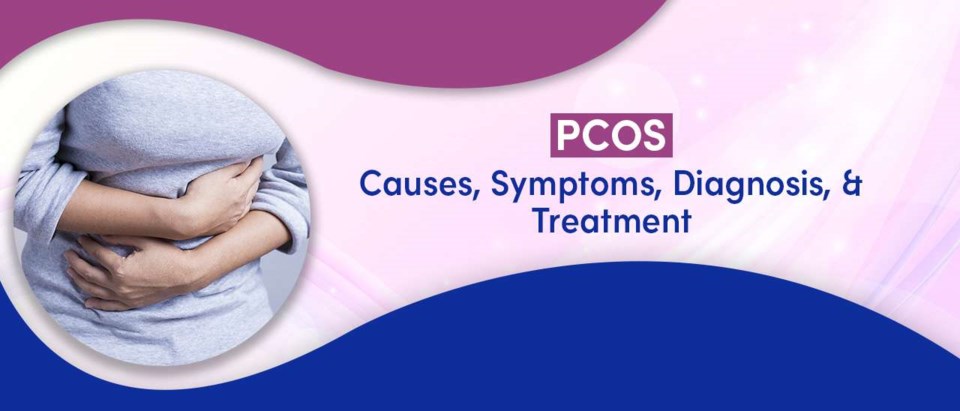POLYCYSTIC Ovary Syndrome (PCOS) is a common hormonal disorder affecting females, often during their reproductive years. Despite its prevalence, many remain unaware of its symptoms and implications. This article delves into the signs of PCOS, how it is diagnosed, and available treatment options.
SYMPTOMS OF PCOS
PCOS manifests differently in each individual, but common symptoms include:
IRREGULAR MENSTRUAL CYCLES: Many women experience infrequent, irregular, or prolonged menstrual periods. Some may have fewer than eight periods a year.
EXCESS ANDROGEN LEVELS: Elevated levels of male hormones can lead to symptoms such as unwanted facial and body hair growth, acne and oily skin, and thinning hair on the scalp.
POLYCYSTIC OVARIES: Enlarged ovaries that contain multiple small fluid-filled sacs (follicles) can often be identified through an ultrasound.
WEIGHT GAIN: Many individuals with PCOS struggle with weight management, often leading to obesity.
INSULIN RESISTANCE: A significant percentage of those with PCOS may develop insulin resistance, increasing the risk of Type 2 diabetes.
SKIN CHANGES: DARK patches of skin, especially around the neck, groin, or under the breasts, can occur.
FERTILITY ISSUES: PCOS is a leading cause of infertility due to irregular ovulation.
DIAGNOSIS OF PCOS
Diagnosing PCOS typically involves a combination of:
MEDICAL HISTORY REVIEW: A healthcare provider will inquire about menstrual cycle regularity, weight changes, and symptoms.
PHYSICAL EXAMINATION: An assessment may include checking for signs of excess hair growth, acne, and weight.
BLOOD TESTS: Hormone levels, including androgens and insulin, are evaluated to rule out other conditions.
ULTRASOUND: A pelvic ultrasound may be performed to visualise the ovaries and check for cysts.
To be diagnosed with PCOS, a person usually needs to meet at least two of the following criteria, known as the Rotterdam criteria: irregular or absent ovulation, elevated androgen levels, and polycystic ovaries visible on ultrasound.
TREATMENT OPTIONS FOR PCOS
While there is no cure for PCOS, various treatment options can help manage symptoms and improve quality of life:
LIFESTYLE CHANGES:
A balanced diet rich in whole grains, lean proteins, fruits, and vegetables can help manage weight and insulin levels. Some find success with a low-carbohydrate or Mediterranean diet. Regular physical activity can help maintain a healthy weight and improve insulin sensitivity.
MEDICATIONS:
Birth control pills can regulate menstrual cycles and reduce symptoms like hirsutism and acne. Metformin, often prescribed for insulin resistance, can help regulate periods and promote weight loss. Medications like spironolactone can reduce hair growth and acne.
FERTILITY TREATMENTS:
For those struggling with infertility, options such as ovulation induction medications (like clomiphene citrate) or assisted reproductive technologies (ART) may be considered. In severe cases, a procedure called ovarian drilling can be performed to restore ovulation.
SUPPORT AND COUNSELING:
Connecting with support groups or mental health professionals can be beneficial, especially for those facing emotional challenges related to PCOS.
PCOS is a multifaceted condition that requires a comprehensive approach to diagnosis and management. Understanding its symptoms and treatment options can empower individuals to seek help and advocate for their health. If you suspect you have PCOS, consult a healthcare provider to discuss your symptoms and explore the best path forward for your health and well-being.




